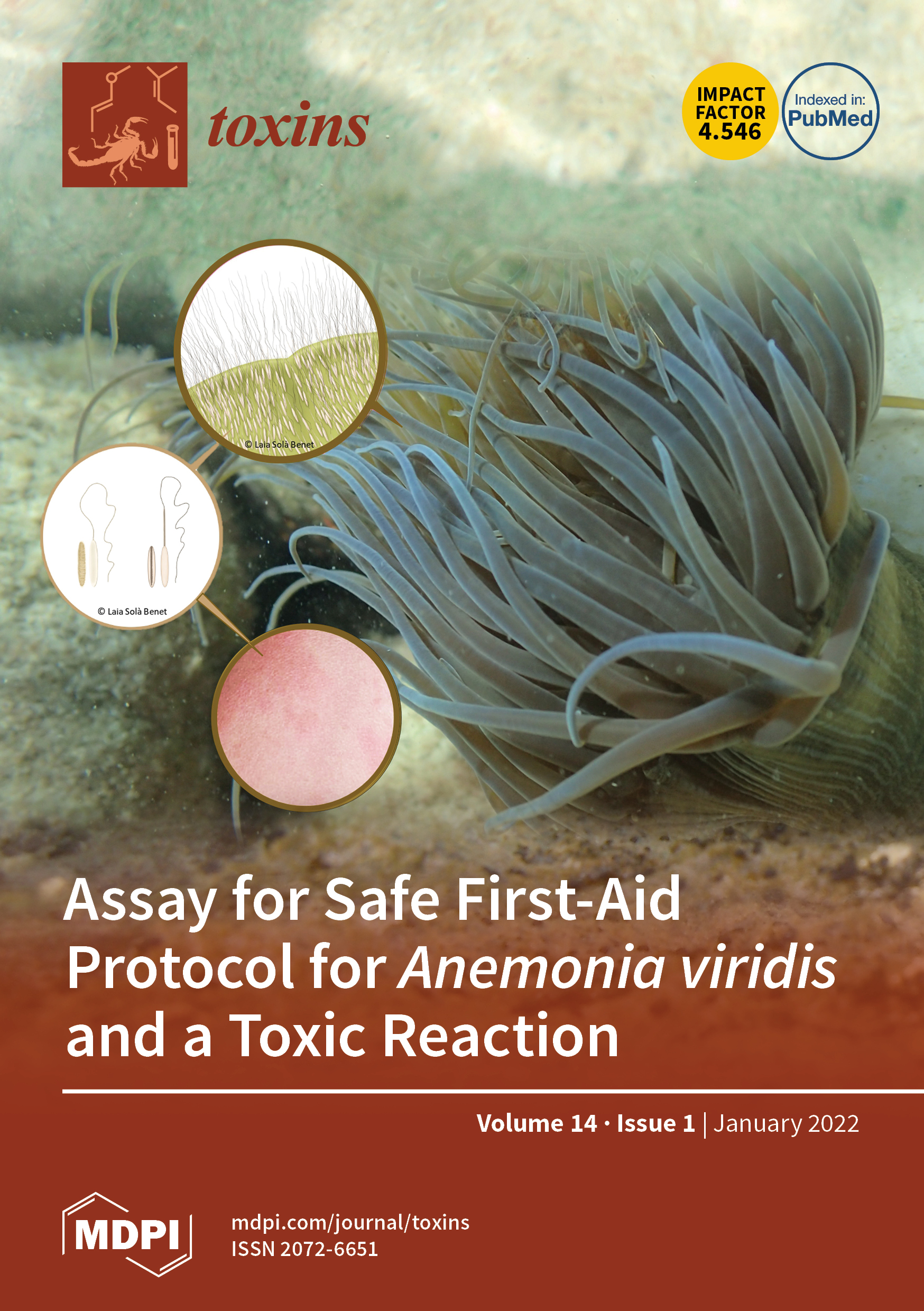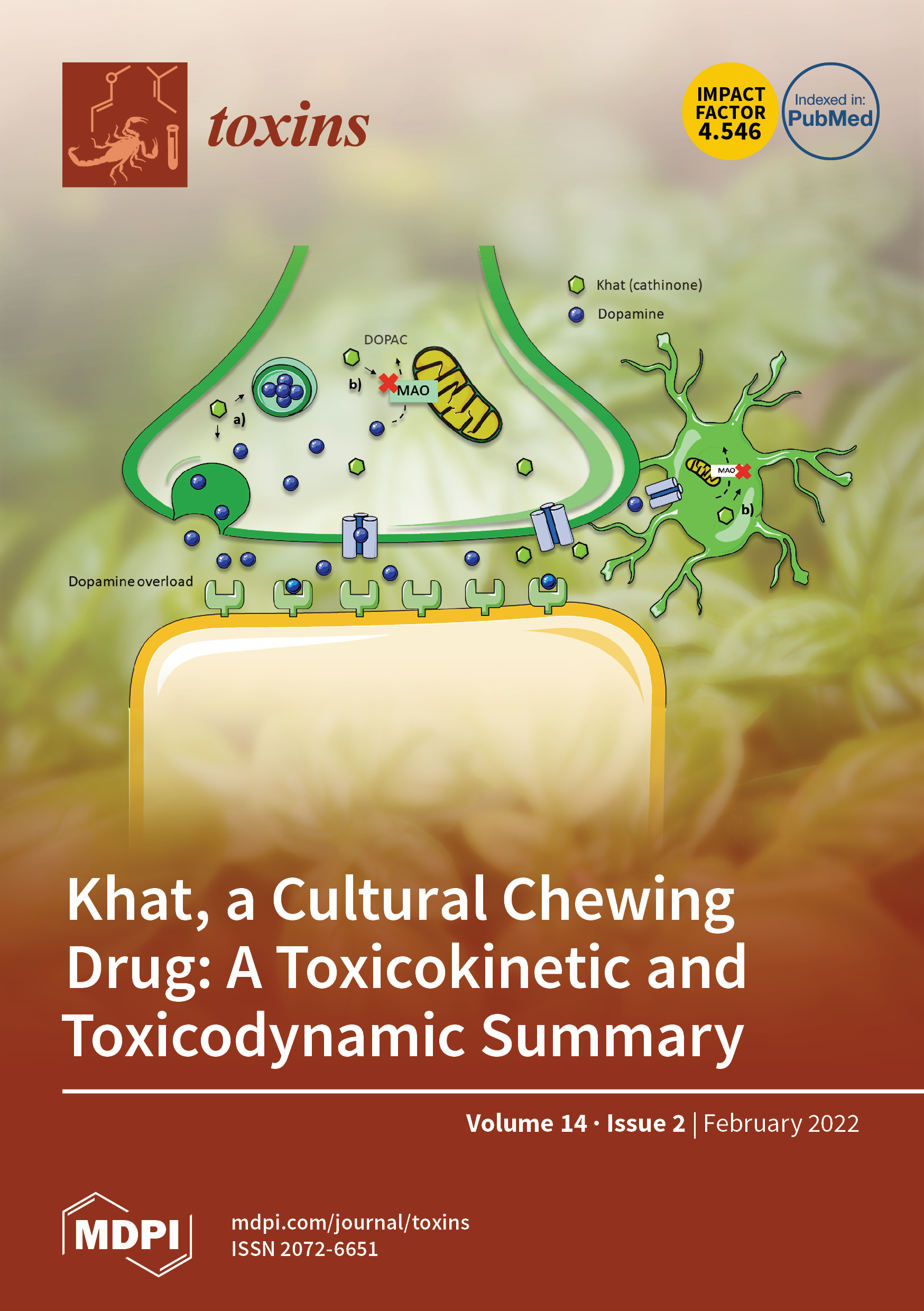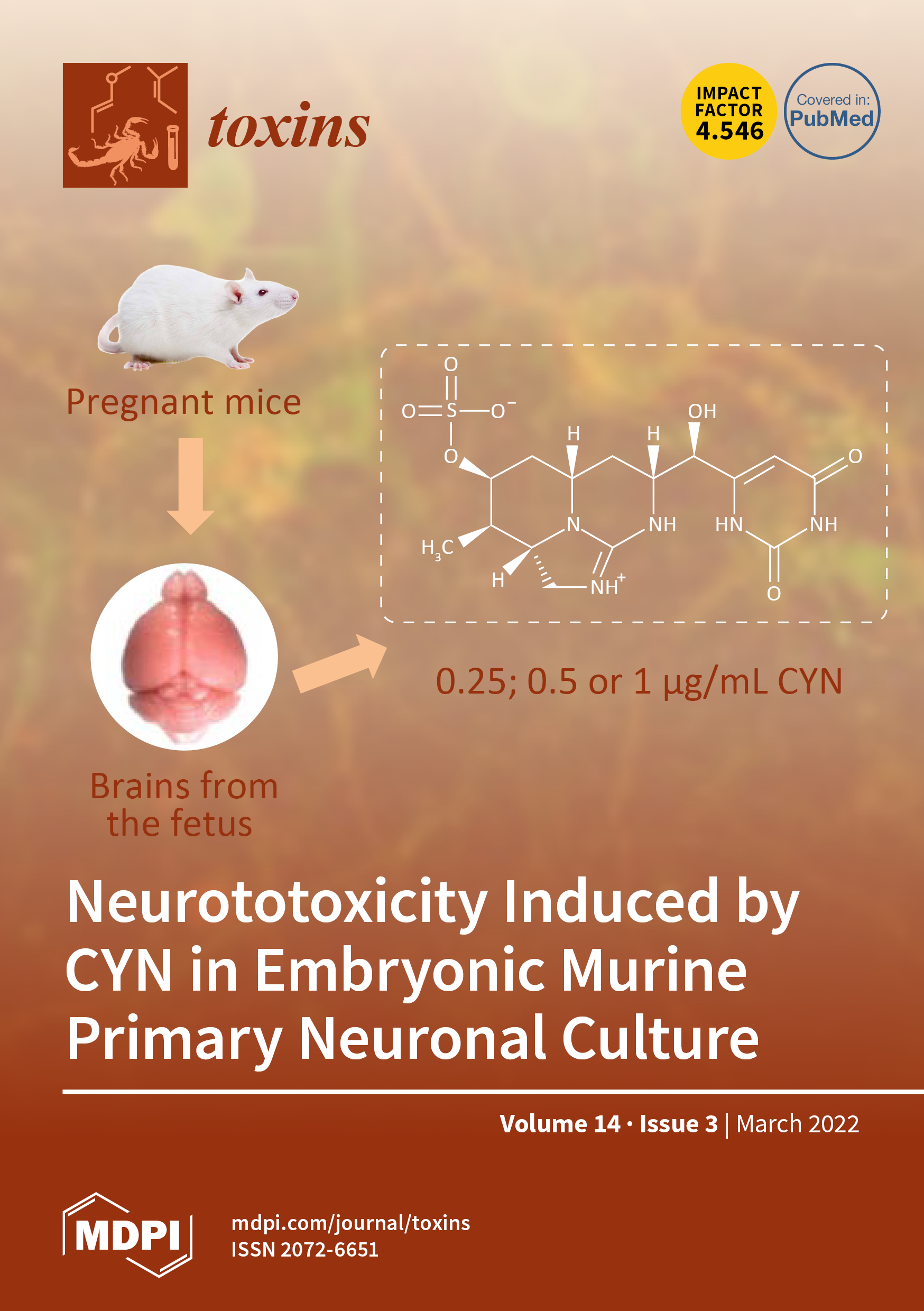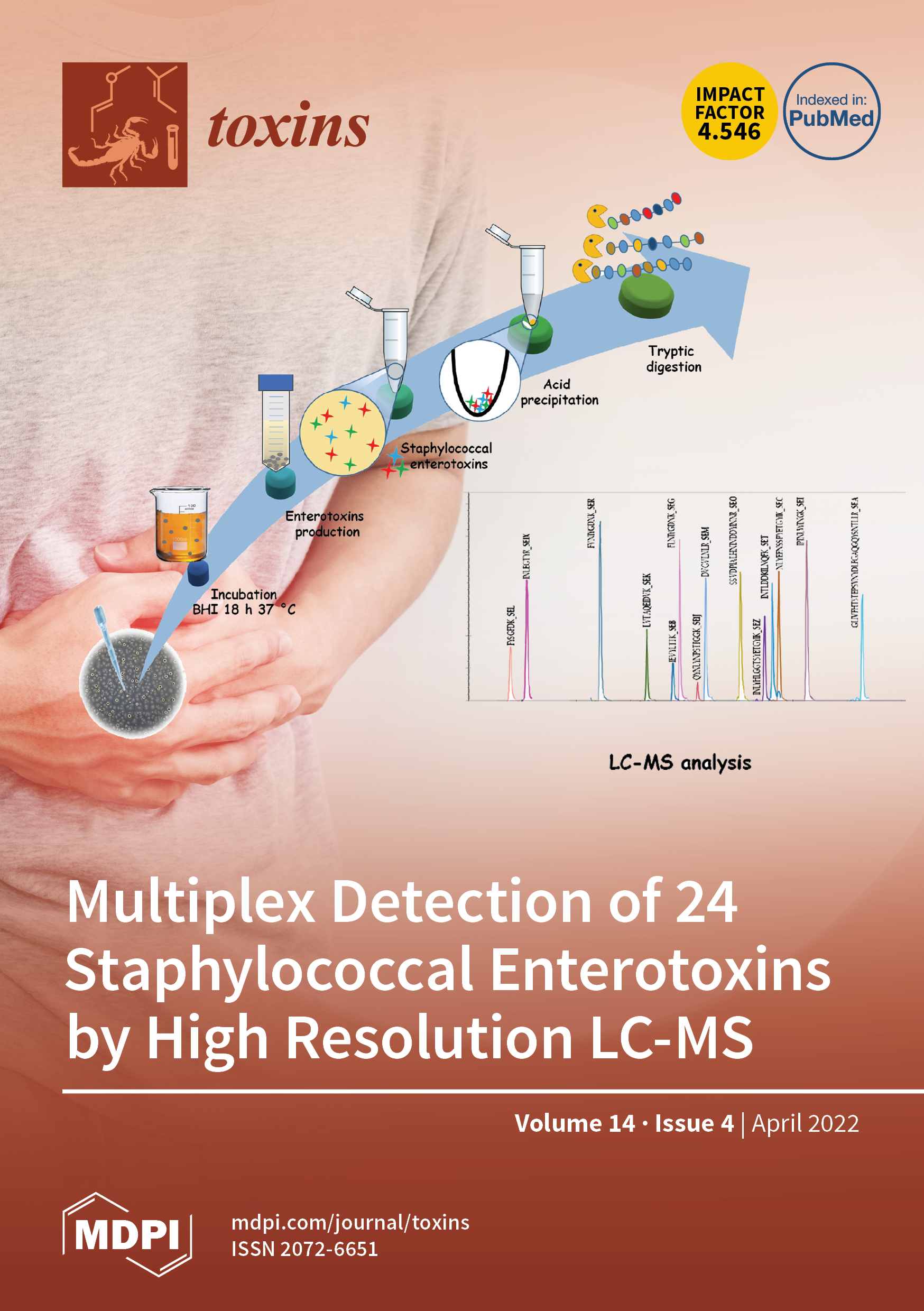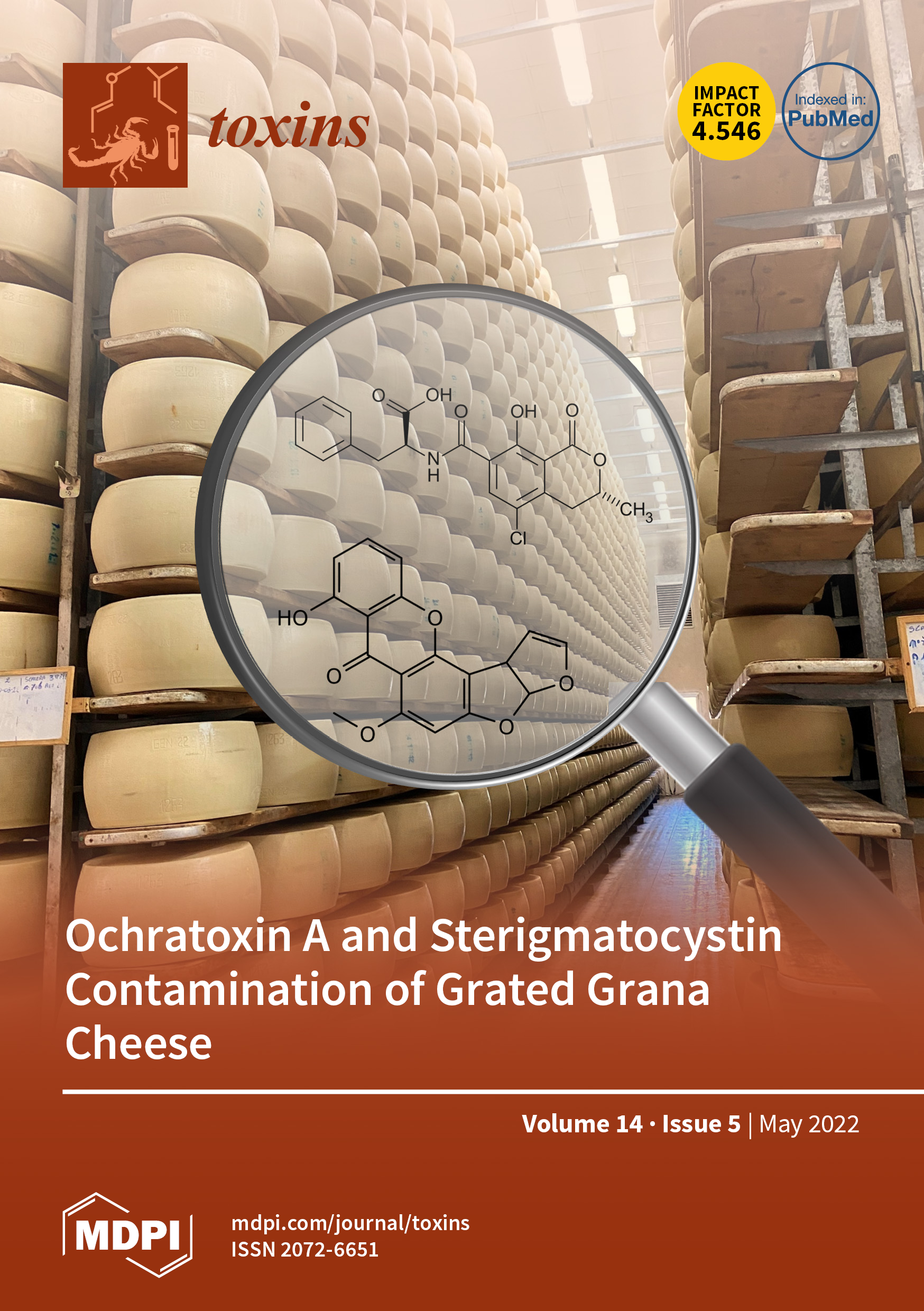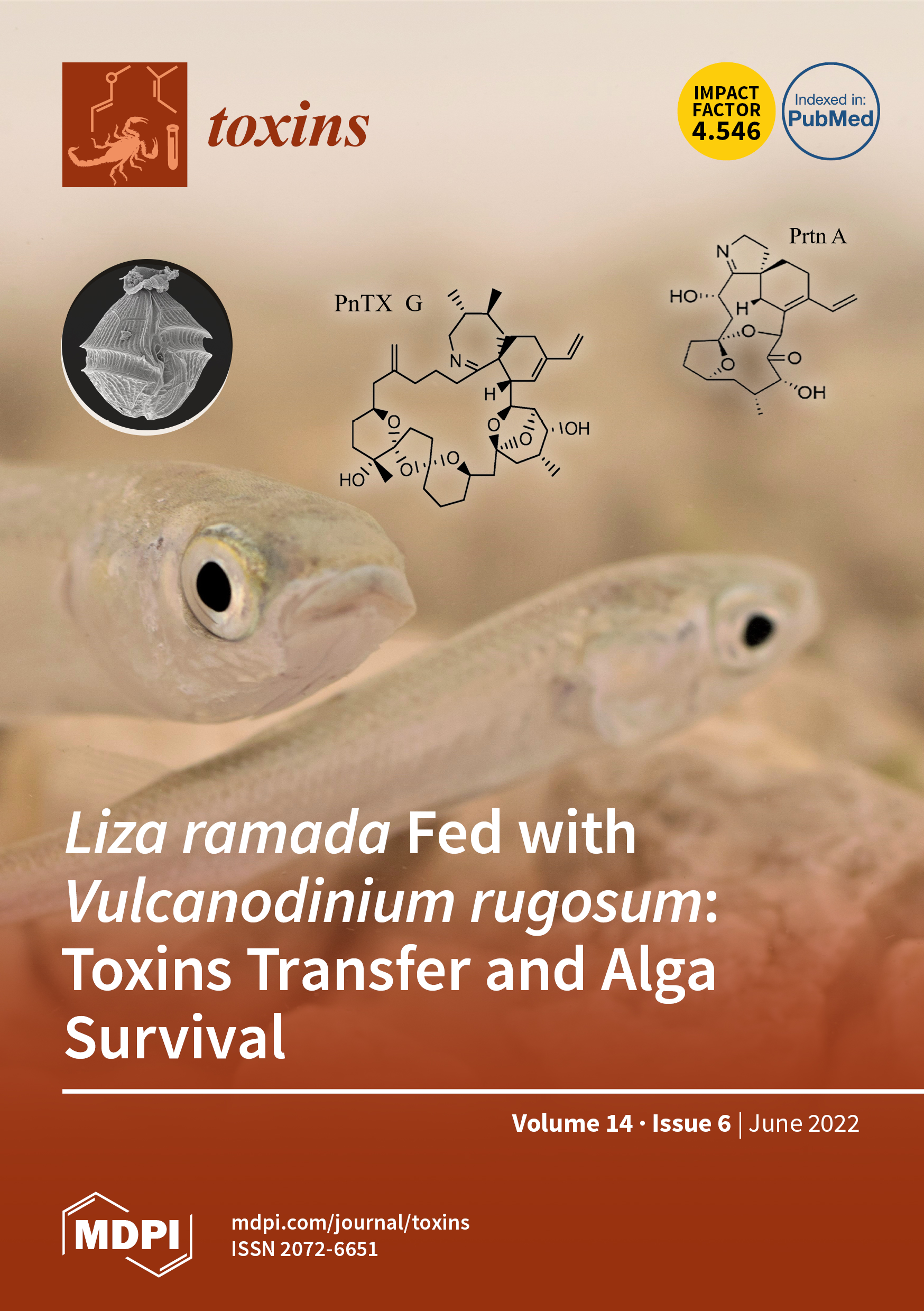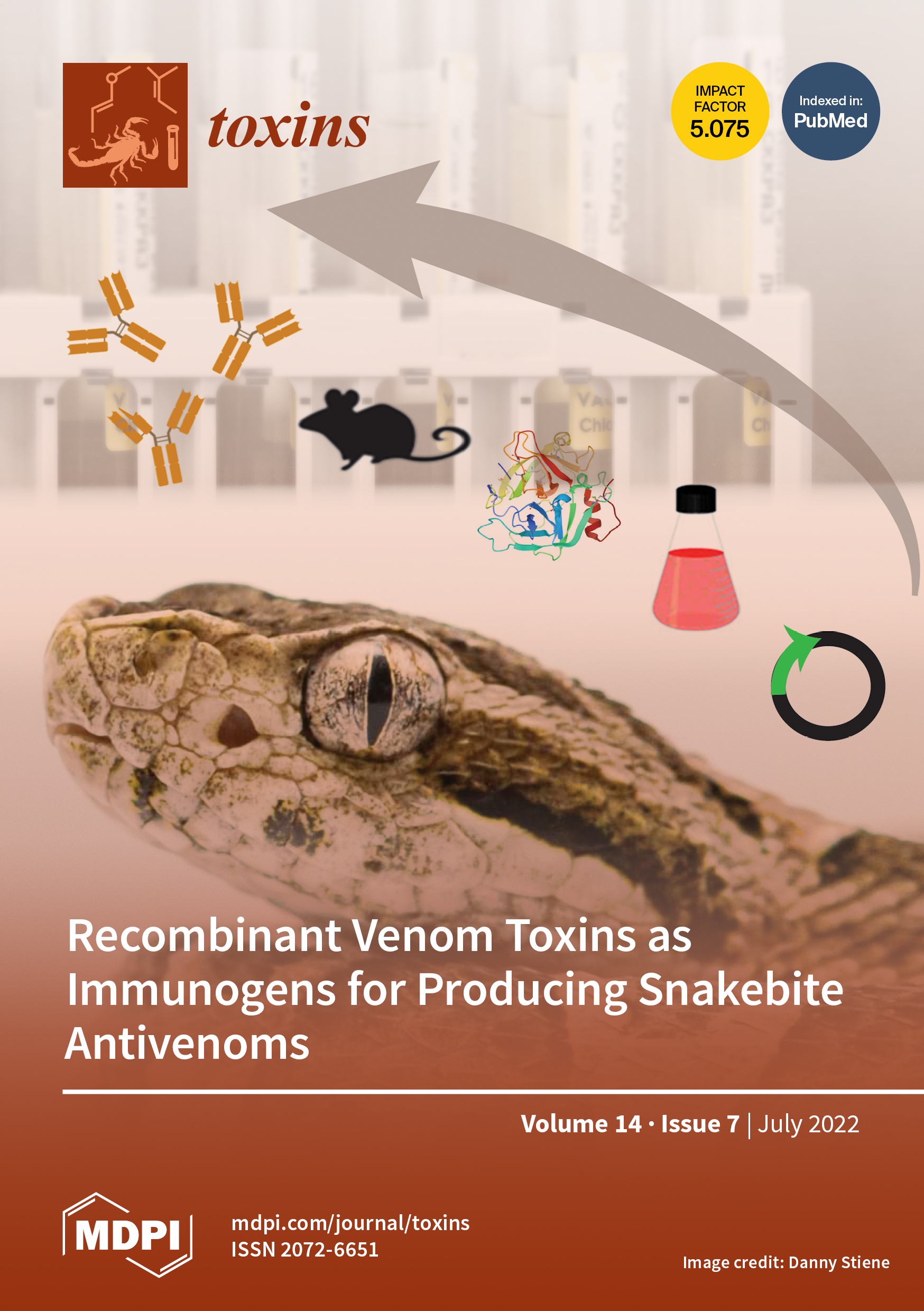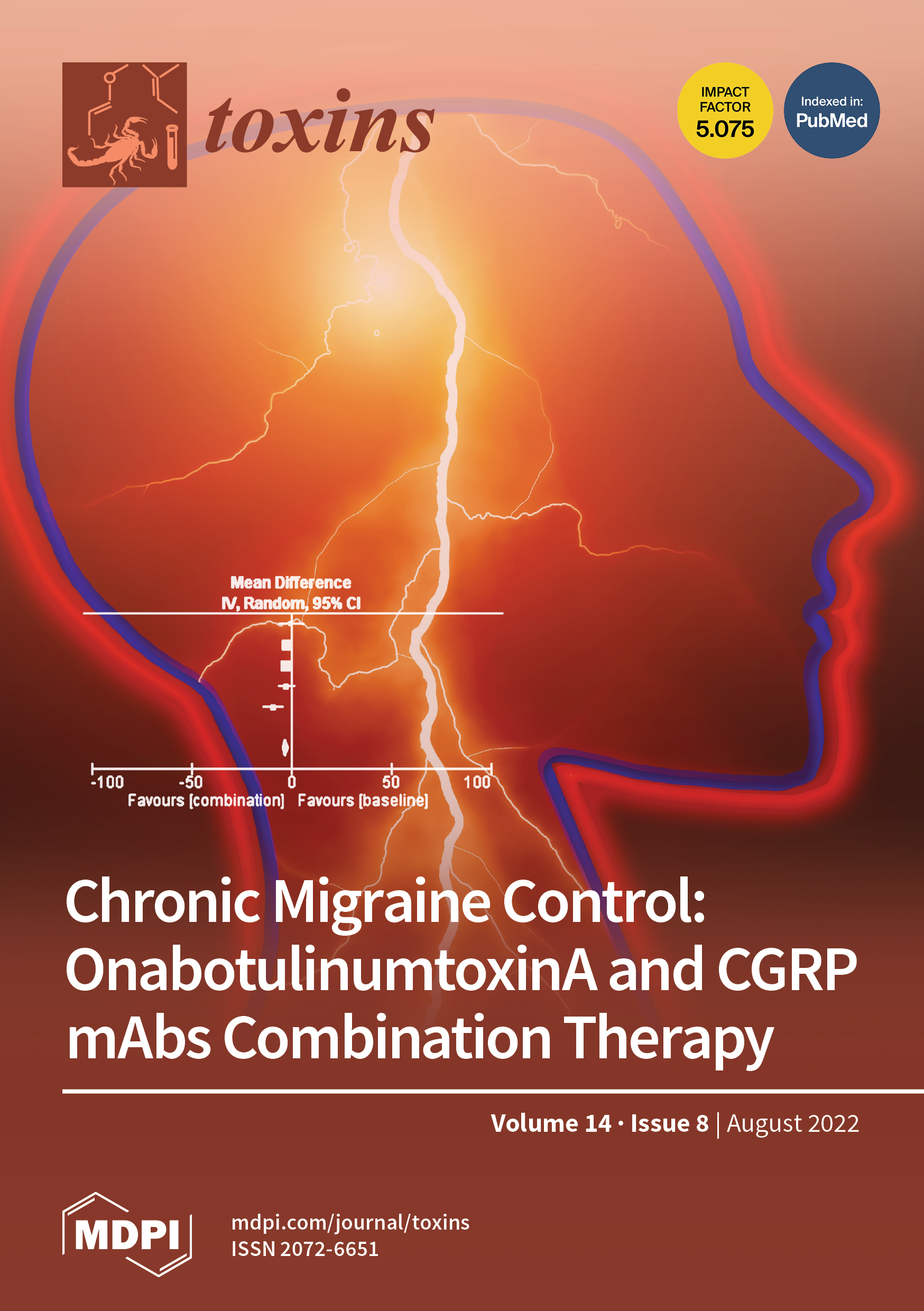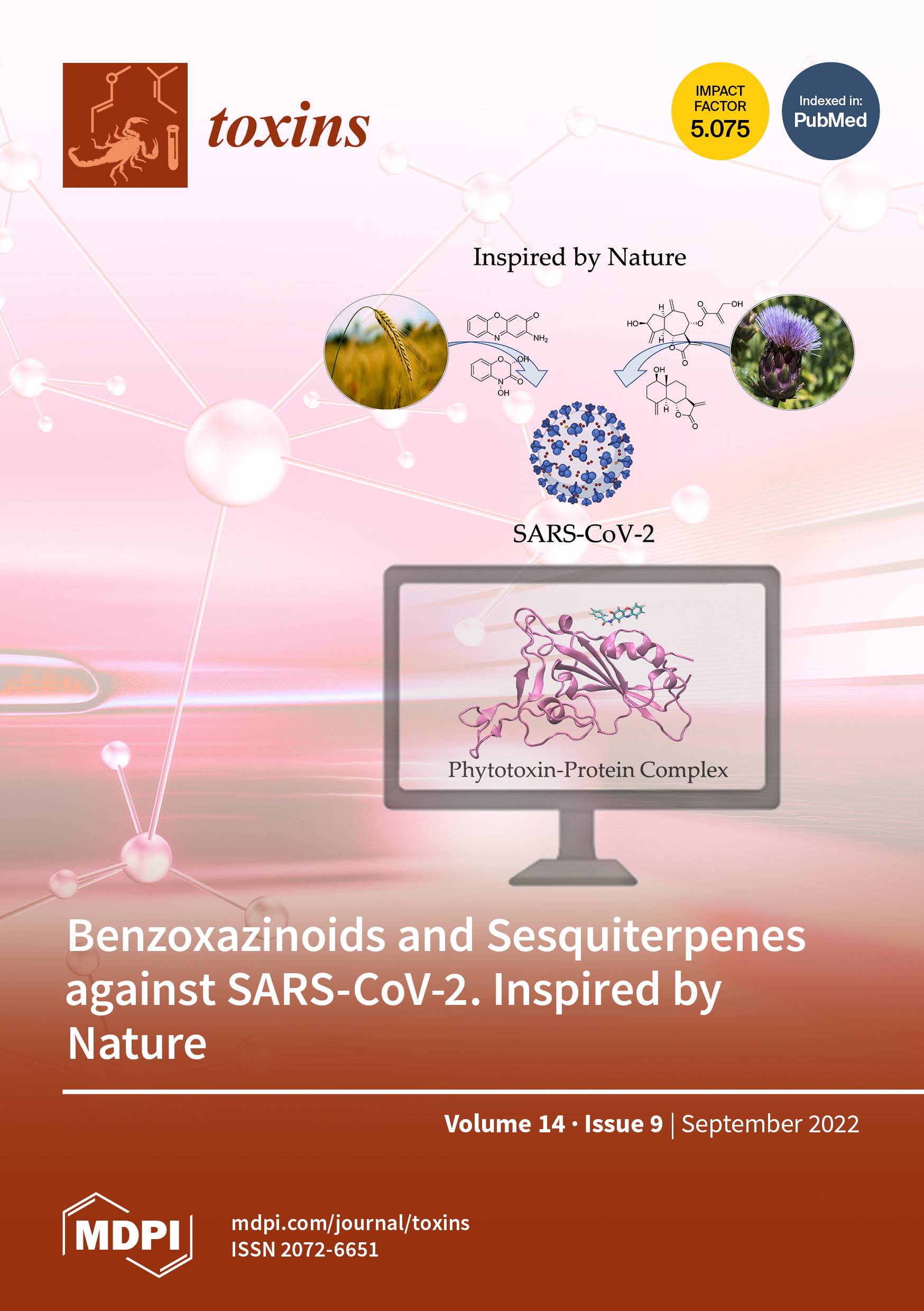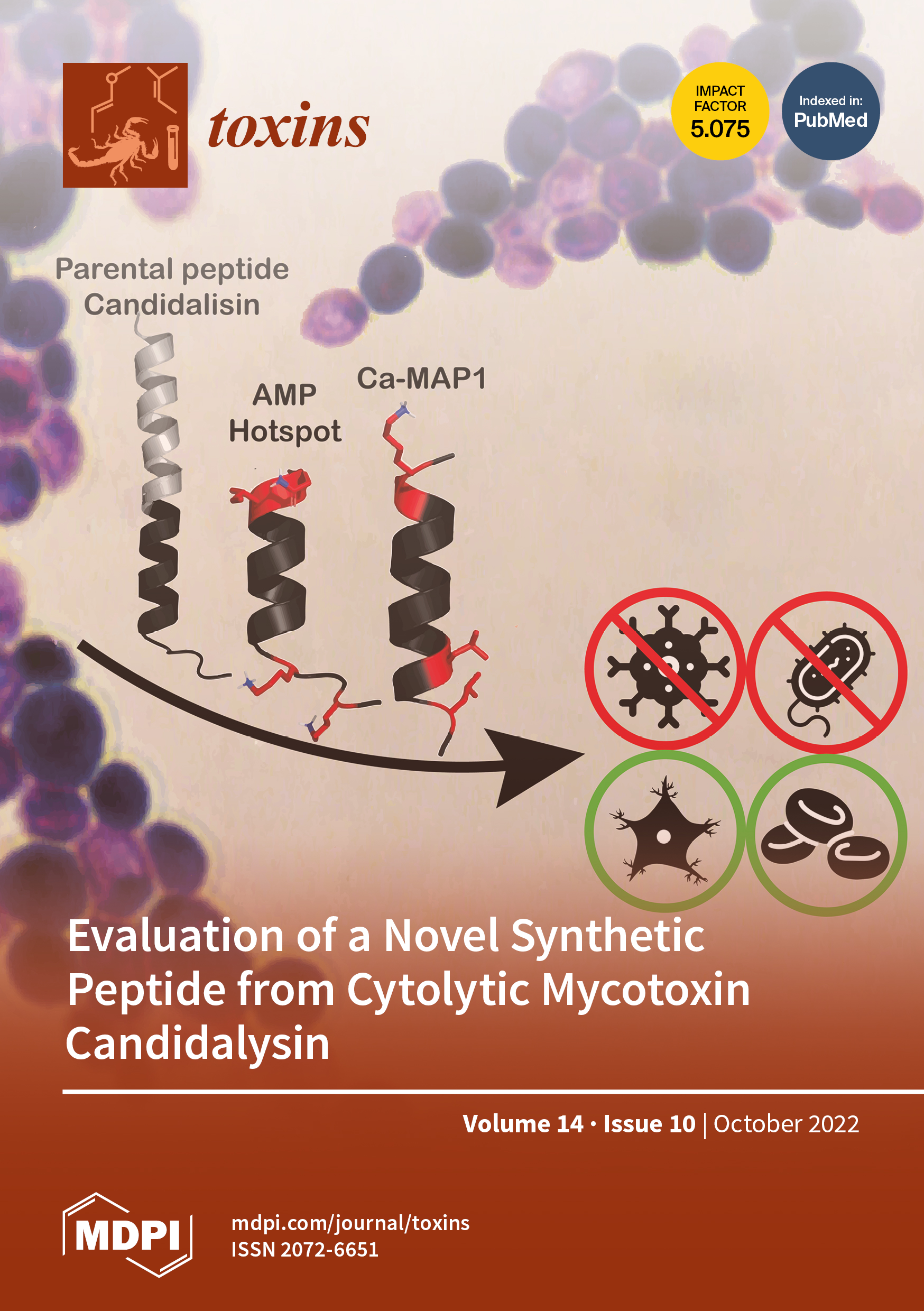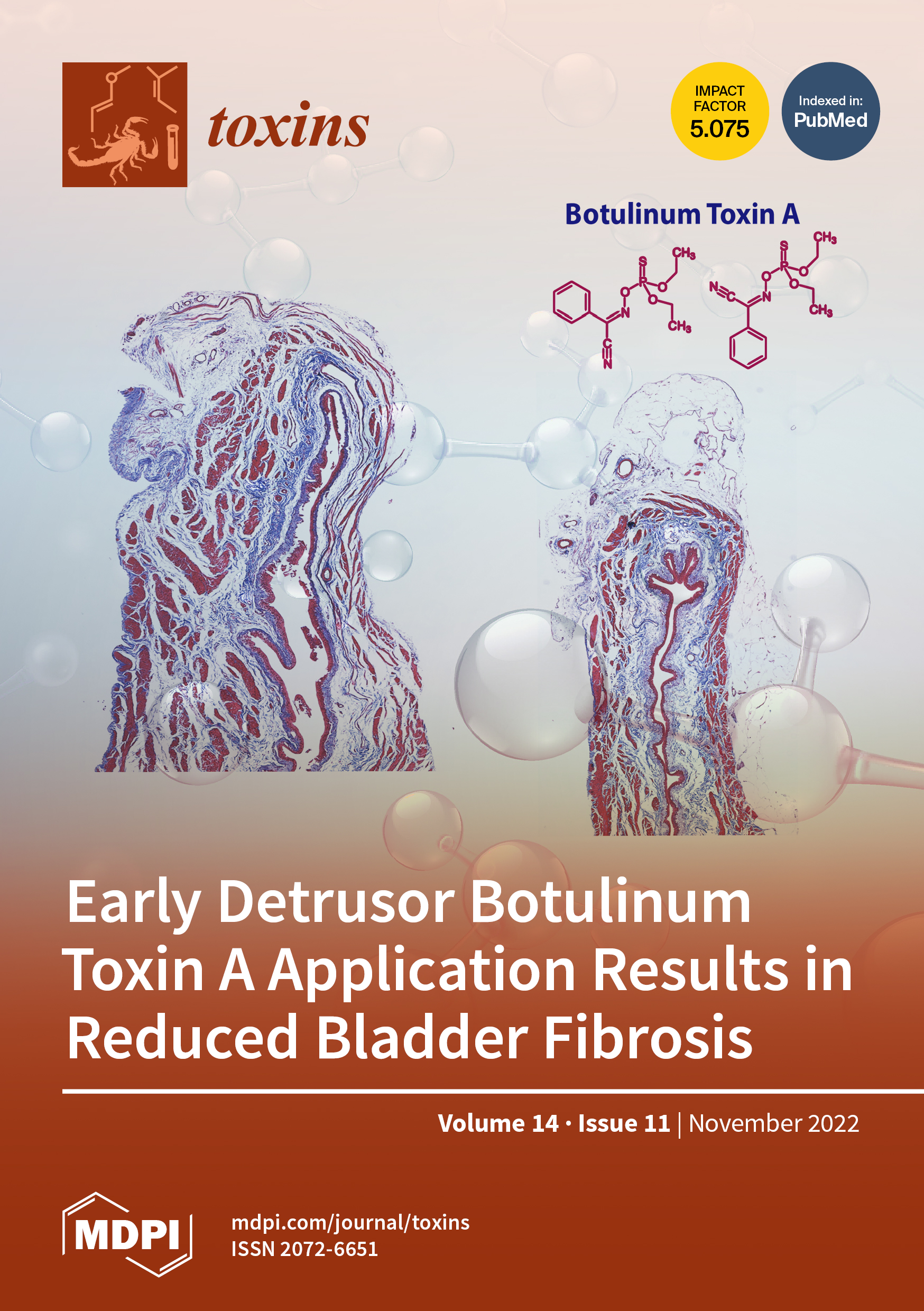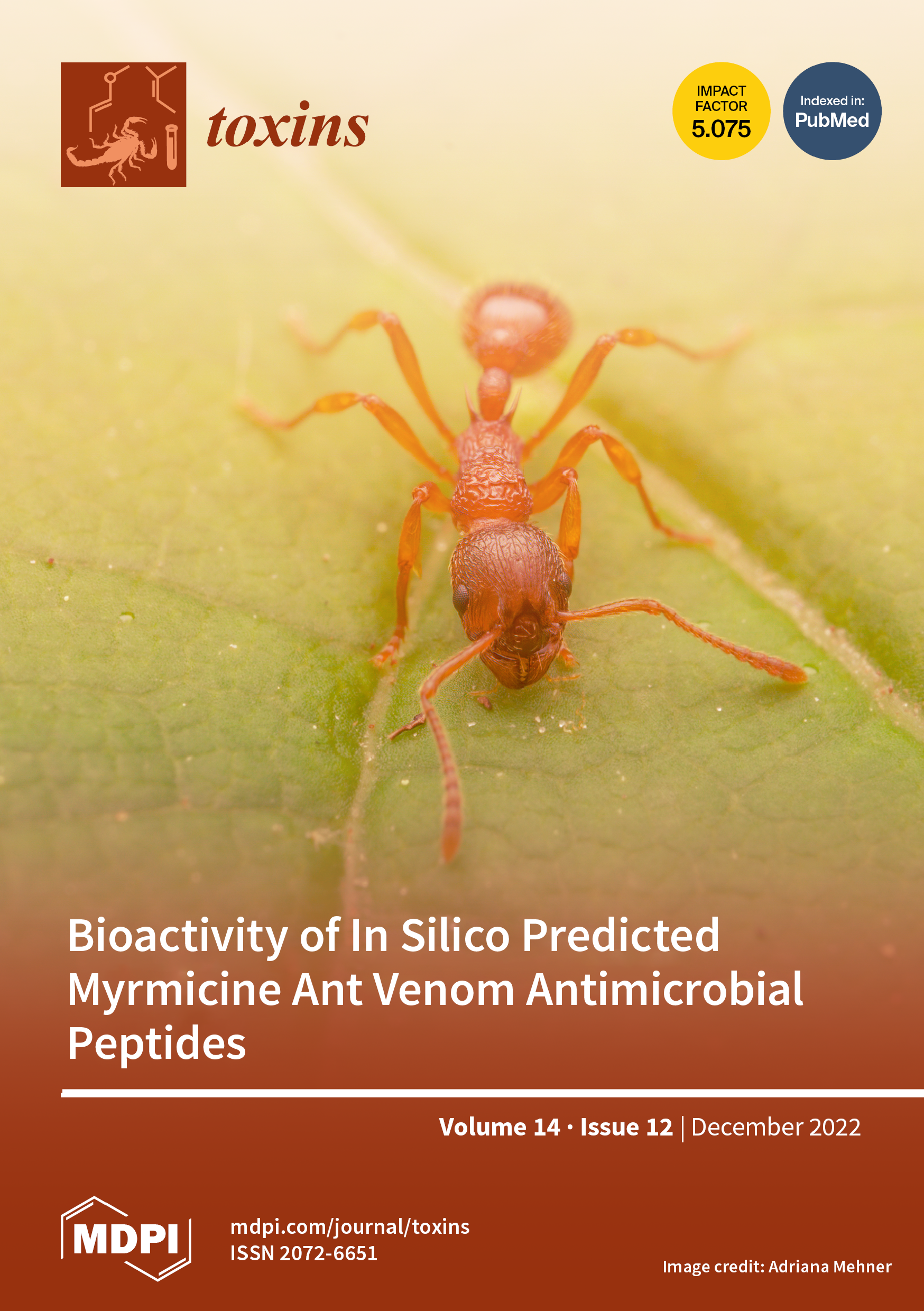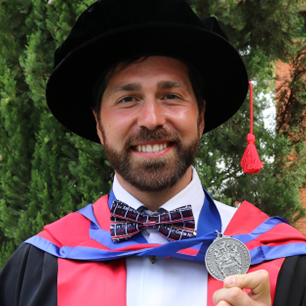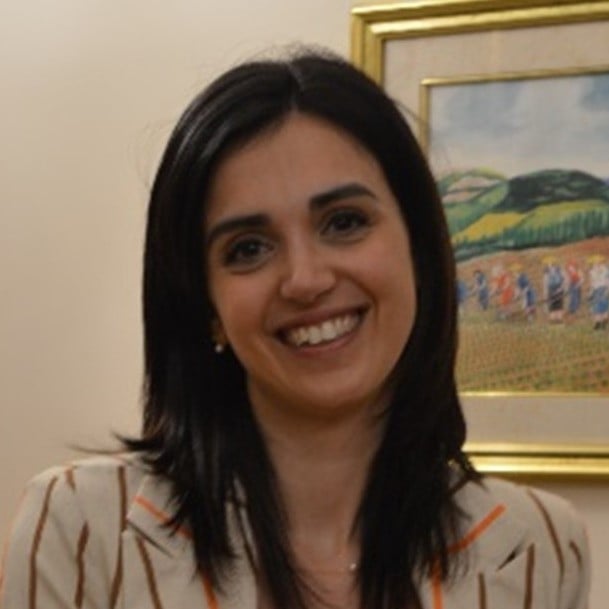
Journal Menu
► ▼ Journal Menu-
- Toxins Home
- Aims & Scope
- Editorial Board
- Reviewer Board
- Topical Advisory Panel
- Instructions for Authors
- Special Issues
- Topics
- Sections & Collections
- Article Processing Charge
- Indexing & Archiving
- Editor’s Choice Articles
- Most Cited & Viewed
- Journal Statistics
- Journal History
- Journal Awards
- Society Collaborations
- Conferences
- Editorial Office
Journal Browser
► ▼ Journal BrowserNeed Help?
Announcements
13 March 2023
MDPI’s Newly Launched Journals in December 2022
As a leading open access publisher, MDPI provides scholars with a high-quality and rich academic exchange platform by continuously expanding into new and exciting research areas.
In December 2022, MDPI launched five new journals, covering multiple subjects such as life sciences, biology, medicine and pharmacology, social sciences and humanities. These new journals are being edited by established scholars across the world.
|
Journal |
Founding Editor-in-Chief |
Journal Topics (Selected) |
|
Prof. Dr. Fabio Gresta, University of Messina, Italy| Editorial | view inaugural issue |
grass/forage/turf production; grassland management; pasture monitoring; grazing and livestock; grass agro-ecosystems| view journal scope | submit an article |
|
|
Prof. Dr. Christos G. Athanassiou, University of Thessaly, Greece| Editorial | view inaugural issue |
pesticides; fungicides; herbicides; fertilizers; soil conditioners| view journal scope | submit an article |
|
|
Prof. Dr. Stephen H. Safe, Texas A&M University, USA| Editorial | view inaugural issue |
receptor structure; receptor function; receptor signaling; receptor expression and regulation; receptor interactions with drugs| view journal scope | submit an article |
|
|
Dr. Jean Jacques Vanden Eynde, University of Mons-UMONS, Belgium| Editorial | view inaugural issue |
drug discovery; medicinal chemistry; preclinical and clinical research; marketed drugs; intellectual property and regulatory affairs| view journal scope | submit an article |
|
|
Prof. Dr. Heather Kanuka, University of Alberta, Canada| Editorial | view inaugural issue |
higher education; tertiary education; policy and practice in higher education; educational leadership in higher education; educational administration and management in higher education| view journal scope | submit an article |
If you are interested in creating more open access journals with us to publish cutting-edge research, please send your journal proposal application to newjournal-committee@mdpi.com.
7 March 2023
Displaying Co-Authors’ Email Addresses on the Webpage of Published Papers
MDPI is pleased to announce that we now display the co-authors’ email addresses in addition to the corresponding author’s email address on the webpage of published papers, protected by Captcha. For more information about this change, please visit the journal’s instructions for authors page.
We believe this change will facilitate academic discussions and advance our cause of open science and research. The corresponding authors are responsible for communicating with their co-authors and indicating in our system (https://susy.mdpi.com/) if co-authors would prefer for their email addresses not to be displayed.
22 February 2023
Toxins | Google Scholar Metrics Released
We are pleased to announce that Toxins (ISSN: 2072-6651) ranked fifth in the latest release of the Google Scholar Metrics under the subcategory “Toxicology”.
The h5-index of Toxins is 69, and the h5-median is 91. We express our gratitude to all the editors, reviewers, authors and readers of Toxins. Thank you for all your support for the journal.
Please feel free to contact us at toxins@mdpi.com if you have any questions or suggestions for Toxins. For more information about our rank in Google Scholar Metrics, please visit the website: https://scholar.google.com/citations?view_op=top_venues&hl=en&vq=med_toxicology.
16 February 2023
Increasing Visibility for Preprints.org – Clarivate adds the Preprint Citation Index to the Web of Science

On 9 February 2023, Clarivate, a global leader in providing trusted insights and analytics, added the Preprint Citation Index to the Web of Science platform, streamlining the research process by allowing researchers to locate and link to preprints alongside other trusted content in the database.
The Preprint Citation Index will act as a bridge to connect cutting-edge preprints with peer-reviewed journal articles published within the Web of Science Core Collection. Alerts can be easily set to monitor new research across several repositories and authors will also be able to include preprints on their Web of Science Research Profile to more accurately display their various research outputs.
As of its launch, the Preprint Citation Index will provide nearly two million preprints from various repositories, including MDPI’s own Preprints.org.
MDPI's Preprints Platform – Preprints.org
To advance Open Science and the fast dissemination of research, MDPI offers researchers a free multidisciplinary preprint platform. Preprints.org accepts submissions from all research areas and offers authors high visibility, permanent archiving, article-level Metrics and immediately citable content by assigning a Digital Object Identifier (DOI) to all preprints.
During submission to any MDPI journal, authors have the option to share their research as a preprint. After an initial screening, the manuscript is available online in 48 hours or less. Once online, preprints can be downloaded, shared, commented on, and cited, providing authors maximum visibility.
We invite you to join the ranks of the over 100k researchers using Preprints.org and share your research.
For more information, please visit Preprints.org.
4 February 2023
Toxins | Issue Cover Articles in 2022
The articles below have been selected as cover articles for 2022 by the Editorial Office of Toxins (ISSN: 2072-6651). You can find the specific cover information at the following link:
https://www.mdpi.com/2072-6651/14. We hope that they provide insights and references for scholars in related fields.
|
|
1. “Trial Assay for Safe First-Aid Protocol for the Stinging Sea Anemone Anemonia viridis (Cnidaria: Anthozoa) and a Severe Toxic Reaction” by Ainara Ballesteros, Janire Salazar, Macarena Marambio, José Tena, José Rafael García-March, Diana López, Clara Tellez, Carles Trullas, Eric Jourdan, Corinne Granger et al. Toxins 2022, 14(1), 27; https://doi.org/10.3390/toxins14010027 Available online: https://www.mdpi.com/2072-6651/14/1/27 |
|
|
2. “Khat, a Cultural Chewing Drug: A Toxicokinetic and Toxicodynamic Summary” |
|
|
3. “Cytotoxicity and Effects on the Synapsis Induced by Pure Cylindrospermopsin in an E17 Embryonic Murine Primary Neuronal Culture in a Concentration- and Time-Dependent Manner” |
|
|
4. “Multiplex Detection of 24 Staphylococcal Enterotoxins in Culture Supernatant Using Liquid Chromatography Coupled to High-Resolution Mass Spectrometry” |
|
|
5. “Ochratoxin A and Sterigmatocystin in Long-Ripened Grana Cheese: Occurrence, Wheel Rind Contamination and Effectiveness of Cleaning Techniques on Grated Products” |
|
|
6. “Liza ramada Juveniles after Exposure to the Toxic Dinoflagellate Vulcanodinium rugosum: Effects on Fish Viability, Tissue Contamination and Microalgae Survival after Gut Passage” |
|
|
7. “Exploring the Utility of Recombinant Snake Venom Serine Protease Toxins as Immunogens for Generating Experimental Snakebite Antivenoms” |
|
|
8. “Pooled Analysis of Real-World Evidence Supports Anti-CGRP mAbs and OnabotulinumtoxinA Combined Trial in Chronic Migraine” |
|
|
9. “In Silico Evaluation of Sesquiterpenes and Benzoxazinoids Phytotoxins against Mpro, RNA Replicase and Spike Protein of SARS-CoV-2 by Molecular Dynamics. Inspired by Nature” |
|
|
10. “Evaluation of a Novel Synthetic Peptide Derived from Cytolytic Mycotoxin Candidalysin” |
|
|
11. “Early Detrusor Application of Botulinum Toxin A Results in Reduced Bladder Hypertrophy and Fibrosis after Spinal Cord Injury in a Rodent Model” |
|
|
12. “Bioactivity Profiling of In Silico Predicted Linear Toxins from the Ants Myrmica rubra and Myrmica ruginodis” |
1 February 2023
Toxins Webinar | Biological Activities and Potential Applications of Phytotoxins, 9 February 2023

Date: 9 February 2023
Time: 10:00 am CET | 4:00 am EST | 5:00 pm CST Asia
Webinar ID: 871 9573 7956
Webinar Secretariat: toxins.webinar@mdpi.com
Keywords: fungal pathogens; secondary metabolites; phytotoxins; biological activities; biopesticides
Register in advance for this webinar:
https://us02web.zoom.us/webinar/register/3316738791133/WN_O7wPRUh_SBmGoGjRcrjDkA
Chair:
|
|
Dr. Marco Masi |
|
Department of Chemical Sciences, University of Naples Federico II, Italy |
|
Invited Speakers:
|
|
Dr. Alessio Cimmino |
|
Department of Chemical Sciences, University of Naples Federico II, Italy |
|
|
|
Dr. Pierluigi Reveglia |
|
Sustainable Agriculture Institute: CSIC, Spain |
|
|
|
Dr. Jesus Zorrilla |
|
Allelopathy Group, Department of Organic Chemistry, Institute of Biomolecules (INBIO), University of Cadiz, Spain |
|
|
|
Dr. Roberta Di Lecce |
|
Department of Agricultural Sciences, University of Naples Federico II, Italy |
|
Interested in contributing to the topic?
The Special Issue below is open for submission. Please do not hesitate to send in your article.
Special Issue: “Biological Activities and Potential Applications of Phytotoxins”
Guest Editor: Dr. Marco Masi
Deadline for manuscript submissions: 28 April 2023
We are looking forward to your participation in our event!
22 December 2022
Special Issue Mentor Program
We are pleased to announce the launch of a new initiative—the MDPI Special Issue Mentor Program.
This program will enable early career researchers (who must hold a Ph.D. in a related field) to experience editing a Special Issue in MDPI journals, under the mentorship of our experienced Editorial Board Members or other experienced scientists. The mentor program will provide an excellent opportunity for early career scientists to gain editorial experience, and to cultivate their ability to edit scientific research.
The mentee’s responsibilities include:
- Proposing a Special Issue title and assisting the mentor in preparing a summary (around 200–400 words) and 3–10 keywords describing the background, importance, and goal of the Issue;
- Writing a brief promotion plan for the Special Issue;
- Preparing a list of scholars who may be interested in the Issue and personally e-mailing invitations on behalf of Guest Editors;
- Writing an editorial for the online Special Issue together with the mentor.
The mentor’s responsibilities include:
- Conducting a final check before the Special Issue is published online;
- Performing editorial control of the Special Issue and quality control of the publications, both of which must be carried out in a timely manner;
- Providing suggestions to younger scholars if they have any doubts or concerns regarding submissions;
- Organizing video calls with young scholars and the Editorial Office regularly to discuss problems and improvement suggestions for the Special Issue;
- Making and submitting decisions regarding submissions with the assistance of mentees.
Certificates and awards:
After the Special Issue closes, the Editorial Office will provide official certificates for all the mentors and early career researchers.
If you are interested in this opportunity, please send your Special Issue proposal to the Editorial Office of a journal you choose, and we will discuss the process (i.e., mentor collaboration, Special Issue topic feasibility analysis, etc.) in further detail. The full list of MDPI journals is as follows: https://www.mdpi.com/about/journals.
In addition to the new Special Issue Mentor Program, we will continue to welcome all Special Issue proposals focusing on hot research topics.
14 December 2022
"Thanks a Million!" – One Million Articles Published in MDPI Journals
MDPI has just become the first open access (OA) publisher to reach the milestone of one million articles published. That is one million articles freely available to all, to circulate and build upon! We are proud to share this special moment with the global scientific community.
This landmark has been reached thanks to the immeasurable support of more than 600,000 expert reviewers, 66,000 editorial board members and 6700 hard-working colleagues across MDPI’s global offices.
Within more than 25 years of publishing, our journals received 2.1 million manuscripts and generated 4.6 million peer review reports to get to one million papers published.
Reaching the milestone of one million articles published reinforces our mission to remove any existing barriers and to make scientific research accessible to all. Since its inception, MDPI’s goal has been to create reliable processes to make science open. This is a path towards facilitating the dissemination of novel insights in scientific communities.
Regular feedback from authors and reviewers shows that our service is greatly appreciated and needed. At the same time, the feedback helps us identify areas for further improvement.
As it stands, a significant share of published research findings remain closed access. More than half of the content published with the most well-known legacy publishers stays behind a paywall, and that is not including articles published in hybrid OA journals, or made available months or years after publication.
A new policy announced by the US administration in August 2022 requires that, as of January 2026, all US federally funded research be made freely and immediately available after publication. While the new policy does not mandate articles be published under an open access license, it is aligned with the open access movement in removing all barriers to research. Similarly, some of the most advanced research institutions in the world intend to have all funded research articles published in open access by 2025.
MDPI is proud to be the leading agent of the transition to open access.
"Thanks a Million" to all the contributors!
14 December 2022
Editorial Board Members from Toxins Featured in the 2022 Highly Cited Researchers List Published by Clarivate

Recently, ClarivateTM revealed its 2022 list of Highly Cited Researchers™—individuals at universities, research institutes and commercial organizations.
The scientists who were selected for this year’s list of Highly Cited Researchers have published highly cited papers in the 11-year period from January 2011 to December 2021, with citation frequency in the top 1% of academic subjects and the same year of publication in the Web of ScienceTM database. Based on Web of Science Citation data, 6938 researchers from across the globe who have demonstrated a disproportionate level of significant and broad influence in their chosen field or fields over the last decade have been awarded Highly Cited Researcher 2022 designations. The list is truly global, spanning 69 countries or regions and spread across a diverse range of research sciences and social sciences.
According to statistics, two members of the Editorial Board of Toxins (ISSN: 2072-6651) have been selected into the list of Highly Cited Researchers of Clarivate in 2022. They are being recognized for their high-quality scientific research achievements and outstanding contributions to professional fields. The Toxins journal office sincerely congratulates all elected Editorial Board Members and hopes that they continue to have an academically productive relationship with the journal.
|
Name |
Affiliation |
|
Prof. Dr. Joseph Jankovic |
Baylor College of Medicine, USA |
|
Dr. Liang Chen |
Yunnan University, China |
14 December 2022
Interview with Mr. Keith Lyons—Winner of Toxins 2021 Best Paper Award
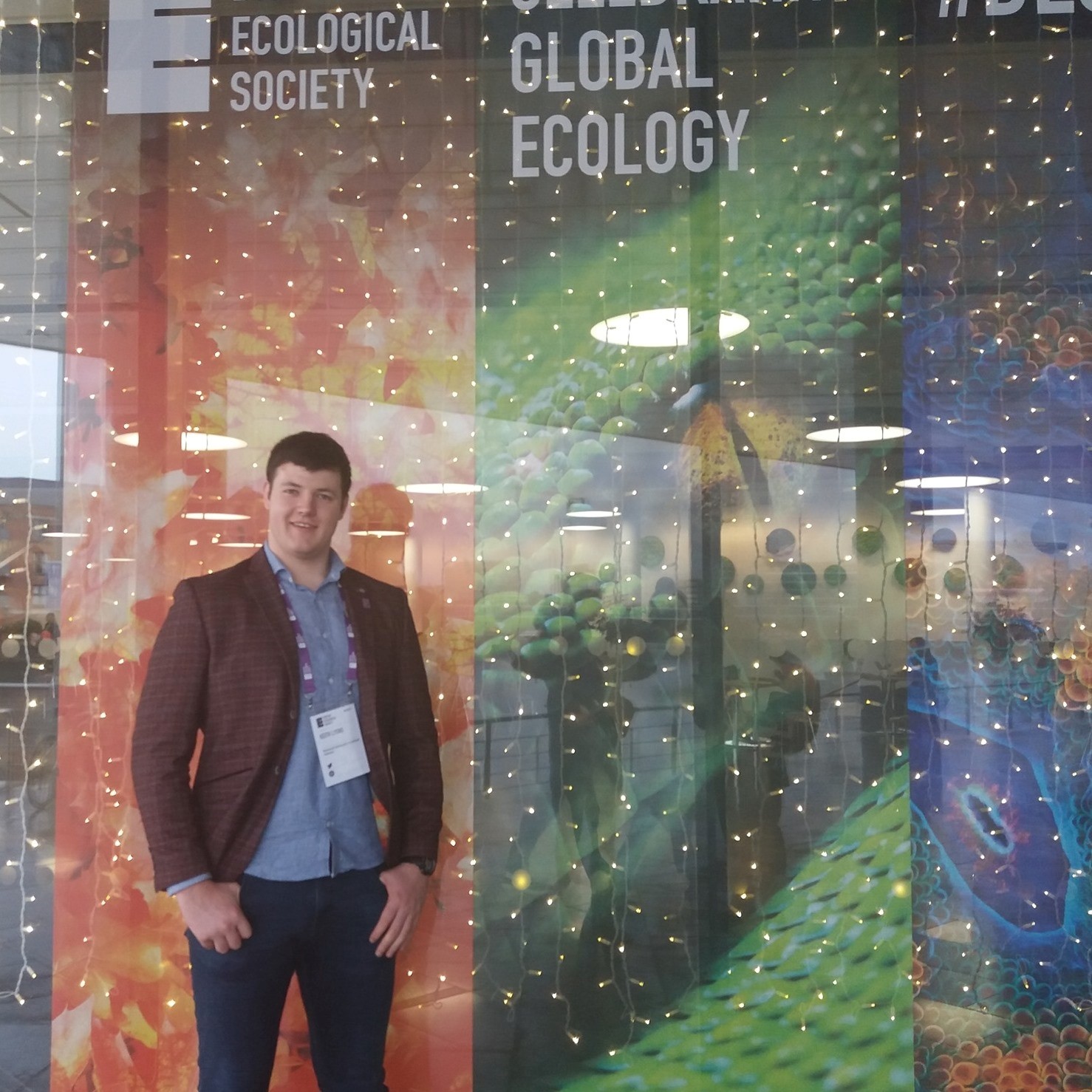
Winning Article: “Diet Breadth Mediates the Prey Specificity of Venom Potency in Snakes”
Authors: Keith Lyons, Michel M. Dugon and Kevin Healy
Photo: Keith attending the British Ecological Society’s 2019 conference at Waterfront Hall, Belfast, where he presented his research on snake venom evolution, which was later published in Toxins.
While studying at the University of Galway (formerly the National University of Ireland, Galway) as an Environmental Science student, Mr. Keith Lyons’s interest in venomous animals quickly became apparent to Dr. Michel Dugon during his second year Zoology lab demonstrations. Seeing his keen interest, Dr. Dugon offered Mr. Lyons a research scholarship for the duration of the summer of 2017, working as an intern with the Noble False Widow spider, Steatoda nobilis, and its venom. Mr. Keith Lyons enjoyed his time working with Dr. Dugon and his team so much that he continued the internship on a voluntary basis for three years, publishing a Steatoda records paper, working with venomous invertebrates and reptiles from Ireland and abroad, e.g., Morocco, and aiding Dr. Dugon in running Eco-Explorers, a STEAM voluntary outreach program that educates the public about native and exotic animals and their ecology. He also worked on his final year undergraduate project with Dr. Dugon, investigating the venoms of two native centipede species (Lithobius forficatus and Lithobius variegatus), the first detailed study of both species’ venom potencies.
As of November 2022, Mr. Keith Lyons is a University of Galway Macroecology Ph.D. student working with his primary supervisor Dr. Kevin Healy and co-supervisor Dr. Dugon. As part of his Ph.D. research, Mr. Lyons continues to work with venom by investigating factors that influence the potency and evolution of different species’ venoms through phylogenetic comparative methods, median lethal dose 50% (LD50) and median effective dose 50% (ED50) experiments. As of November 2022, he has published two studies in Toxins (ISSN: 2072-6651), one discussing how diet breadth drives the evolution of potency in snake venom and the other on how venom optimization and high potency makes Steatoda nobilis a successful invasive spider.
We want to congratulate Mr. Keith Lyons, Mr. Michel M. Dugon and Mr. Kevin Healy for winning the Toxins 2021 Best Paper Award.
Interview with one of the authors–Mr. Keith Lyons:
1. Could you please briefly introduce the main research content of the winning paper?
While venoms have been found to have prey-specific potencies, the role of diet breadth (also known as the number of different taxa found in a species natural diet) on venom potencies has yet to be tested at large macroecological scales. We performed a phylogenetic comparative analysis of 100 snake species and their venom LD50s, collected from the scientific literature, to determine if the evolution of prey-specific venom potencies is a result of the breadth of a species’ diet.
2. Could you describe the difficulties and breakthrough innovations encountered in this research?
The main challenge of the study was compiling the biological data pertaining to snake diet and venom potency. It took a very long time to complete and countless literature searches often yielded little to no data. Despite the large size of the dataset we produced in the end, biological data relating to snakes are very limited. This is a trend we observed in spiders and other venomous groups, showing the importance of producing and compiling this kind of data.
3. How was your experience submitting to Toxins?
Submitting my research to Toxins was a smooth process. I appreciated this as it was my first time submitting research as the lead author. Everyone I corresponded with during the submission process was accommodating and helpful. The deadlines were reasonable throughout, and processing was quick.
4. How do you think Open Access impacts authors?
In the short term, no author is elated about having to pay publication fees, even with waivers (although waivers are greatly appreciated). However, once that obstacle is overcome, I feel it is worth it in the long term for authors, as greater accessibility means increased readership, which ultimately leads to more citations and interest in your research. I believe a significant part of why my snake venom research is performing so well because it was published in an Open Access journal. The benefits associated with increased accessibility are likely the reason behind Open Access publishing becoming more popular among the scientific community.
5. Any suggestions that you have for Toxins, or anything else that you want to talk about?
I would like to thank everyone involved with the journal Toxins for not only selecting my research as the “Issue Cover” for Volume 12 Issue 2 of their journal but also for the 2021 Best Paper (Research Article) Award. It means a lot to my Ph.D. supervisors and me, and we are very grateful for the interest shown in our research.




